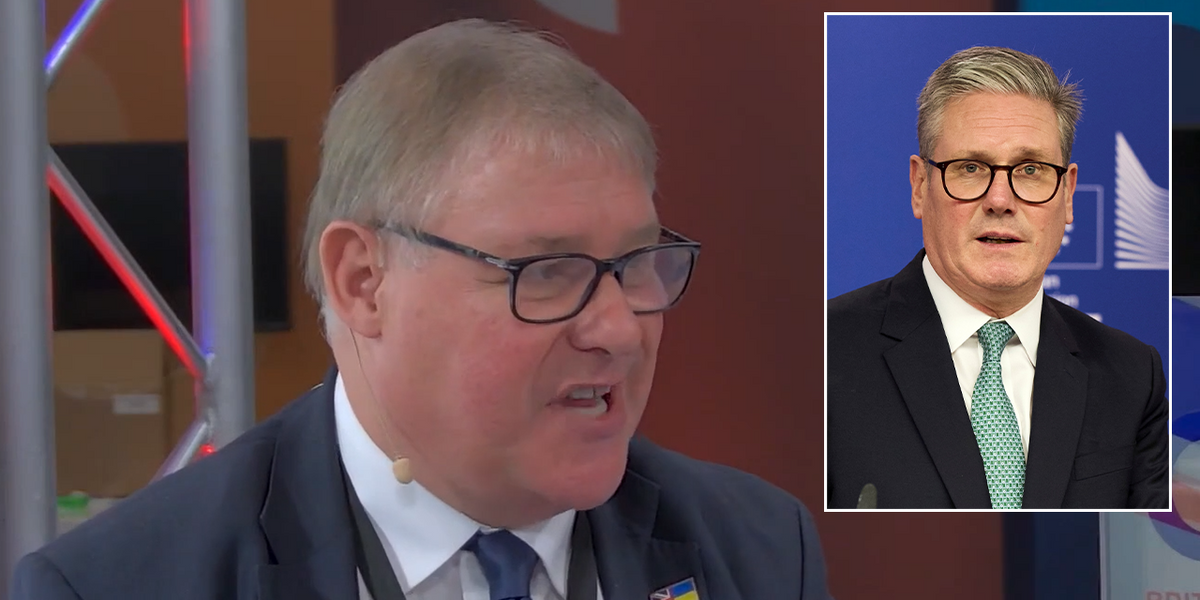Mark Francois Raises Concerns Over Keir Starmer’s EU Reset
In a recent appearance on GB News, Mark Francois, the chair of the European Research Group and Conservative MP, voiced his apprehensions regarding Labour leader Keir Starmer’s upcoming trip to Brussels. This visit, which aims to foster a "more pragmatic and mature relationship" with the European Union, has sparked a debate about the future of UK-EU relations and the implications of Starmer’s approach.
Starmer’s Intentions Under Scrutiny
Francois expressed his worries about Starmer’s intentions, emphasizing that he views the Labour leader as a "Remainer." He recounted his experiences in Parliament, where he observed Starmer collaborating with various factions to maintain the UK’s ties with the EU. "I sat in Parliament week after week for over two years and watched Starmer conspire with people all around the House to try and keep us in the EU at almost any cost," Francois stated, highlighting his skepticism about Starmer’s current efforts.
This skepticism is rooted in Starmer’s historical stance on Brexit, particularly his previous calls for a second referendum. Francois’s concerns reflect a broader unease among some Conservative MPs about the Labour leader’s commitment to the principles of Brexit, which many believe should not be revisited.
The Brussels Agenda
Starmer’s itinerary in Brussels includes meetings with prominent EU figures, such as European Commission President Ursula von der Leyen, European Council President Charles Michel, and European Parliament President Roberta Metsola. These discussions are framed as the beginning of a conversation aimed at exploring potential pathways for improved cooperation between the UK and the EU.
Starmer’s stated goal is to "put the Brexit years behind us" and focus on addressing international challenges collaboratively with European partners. This approach signals a shift from the contentious debates of the past, but it raises questions about how far Starmer is willing to go in redefining the UK’s relationship with the EU.
Specific Areas of Focus
While Starmer has firmly ruled out rejoining the EU’s single market, customs union, or freedom of movement arrangements, he is keen on enhancing relations in specific areas. His proposals include negotiating a new veterinary agreement to streamline border checks and advocating for mutual recognition of professional qualifications. These initiatives aim to ease trade barriers and facilitate smoother interactions between the UK and EU.
Moreover, Starmer is pursuing a "broad-based security pact" with the EU, which underscores the importance of collective security in an increasingly complex global landscape. However, both sides acknowledge that achieving substantive changes will require rigorous negotiations, especially since the core tenets of the Brexit settlement remain intact.
Calls for Youth Mobility
Amidst the discussions of a new relationship, pro-EU campaigners are urging Starmer to reconsider his stance on youth mobility. The European Commission has proposed a scheme that would allow 18 to 30-year-olds to live and work in each other’s territories for up to four years. Critics argue that dismissing this opportunity would disadvantage British youth, who are already facing economic challenges exacerbated by Brexit.
Sir Nick Harvey, chief executive of European Movement UK, emphasized the importance of this initiative, stating, "Dismissing the idea of reciprocal youth mobility simply means letting down British young people." Similarly, Cal Roscow from Best for Britain highlighted the potential benefits of such a scheme, suggesting that it could provide invaluable experiences for young Brits.
Conclusion
As Keir Starmer prepares for his pivotal meetings in Brussels, the reactions from figures like Mark Francois illustrate the complexities of navigating post-Brexit relations. While Starmer’s intentions to reset the UK-EU relationship may resonate with some, they also raise significant concerns among Brexit proponents. The outcome of these discussions will not only shape the future of UK-EU relations but also influence the political landscape in the UK as both parties grapple with the legacy of Brexit and the aspirations for a new chapter in international cooperation.
